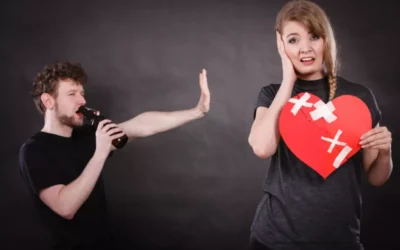Tietz began feeling intense self-loathing and having thoughts that her husband might be better off without her. She quit drinking for 90 days as a result of these suicidal thoughts and noticed they quickly went away. Gillian Tietz, host of the Sober Powered podcast, began feeling https://ecosoberhouse.com/ depressed around 10 years old when she faced bullying in school. In addition to a low mood, Tietz often experienced extreme fatigue, apathy, and difficulty focusing. Kitley ultimately decided to detail her experiences with drinking and depression in her autobiography, “MY self.”

Study Suggests Even Light Drinking May Shorten Your Lifespan
- Depressive symptoms can result from life stressors, mental health conditions, medical conditions, and other factors.
- Even if they don’t improve immediately, you’ll probably have an easier time doing something about them when you don’t have to deal with physical symptoms, too.
- Alcohol consumption irritates the lining of the stomach and intestines.
- Studies of twins have shown that the same things that lead to heavy drinking in families also make depression more likely.
- Taken together, the current literature suggests a need to routinely assess alcohol use and to address alcohol use among the large number of depressed patients who are drinking heavily.
Alcohol can affect several dozen neurotransmitters and receptors, making understanding its mechanism of action in the brain complicated. Over time, your brain’s structure and function change, leading to tolerance, meaning you may require higher amounts of alcohol to achieve the desired effects. These brain changes contribute to the compulsive nature of addiction, making it difficult to abstain from alcohol. Alcohol addiction, or alcohol use disorder, is a complex and chronic brain disorder characterized by compulsive alcohol use, loss of control over drinking, and an intense craving for alcohol despite negative consequences. Alcohol is one of the leading causes of death in the United States, contributing to approximately 178,000 deaths annually.
- Depression may even cause people to begin consuming large amounts of alcohol.
- If you already have depression, you might feel even worse, since alcohol can magnify the intensity of your emotions.
- Without getting too clinical, what’s important to know is that alcohol stimulates the automatic nervous system.
- Panic attacks that are likely to develop during alcohol withdrawal are also likely to diminish in frequency and intensity on their own without medications (Schuckit and Hesselbrock 1994).
- Heavy and long-term drinking can put significant strain on the body, leading to an increase in the stress hormone cortisol.6 Because of its role in our “fight-or-flight” response, increased levels of cortisol can cause feelings of chronic stress.
- The distinction is important, because symptoms might be only temporary, whereas true psychiatric disorders are likely to require long-term and more intensive treatments, including psychotherapy and medication.
Children of alcoholics (COA’s) do not have an increased risk for major depressive or anxiety disorders
Alcohol abuse and dependence are both considered an alcohol use disorder, with studies finding that alcohol dependence is more closely tied to the persistence of depressive disorders. But there are some practical reasons why gabapentinoids might work better than other drugs for some patients, Shah said. For one thing, treatment with acamprosate requires patients to take six pills per day. The other FDA-approved medications, naltrexone and disulfiram, also have shortcomings. With the latter, sold under brand name Antabuse, drinking alcohol while taking it can cause strong side effects.
- This is the equivalent of six pints of average-strength beer or six medium glasses of wine.
- And because what goes up must come down, your mood will eventually nosedive.
- As this is happening, it can affect your central nervous system and cause you to feel jittery or anxious.
- Readers interested in more detailed descriptions of the methods of particular studies, however, are referred to specific citations within those reviews.
- Schuckit and colleagues have studied the rates of psychiatric disorders in COA’s from a variety of perspectives.
Why You Feel Depressed After Drinking and How to Handle It
SSRIs are shown to increase some people’s desire to drink.14 Alcohol can also worsen the side effects of antidepressants, which include dizziness, drowsiness, insomnia, blurred vision, headaches, and more. It is, therefore, not surprising that more than one out of every three alcoholics has experienced episodes of intense depression and/or severe anxiety (Cox et al. 1990; Wilson 1988). These psychological conditions are often intense enough to interfere with life functioning, and the symptoms are often recognized by physicians and can alcohol make depression worse other health care providers as serious enough to require treatment. When depressed or anxious alcohol-dependent people are asked their opinions about cause and effect, they often reply that they believe they drink in order to cope with their symptoms of sadness or nervousness. Finally, the etiology, course, and treatment of both AUD and depression differ substantially by gender. Women have been underrepresented in much of the research on co-occurring AUD and depressive disorders, particularly in the early research on this topic.
Stop drinking if you start to feel bad
Tips to change your relationship with alcohol
- Over the course of time, fatigue has a way of driving your mood downward, which can suck because you don’t have the ability to do the things you want to – like grocery shopping, working out and hanging with friends.
- Second, the possibility that a longer term anxiety or depressive disorder exists in an alcoholic must always be considered.
- However, research does not unanimously support the prior existence of severe depressive or anxiety disorders as a usual cause of alcoholism.
- If you drink regularly to manage depression symptoms, it may have be beneficial to work with a therapist who specializes in treating co-occurring depression and alcohol use.
Prescription Medication for Depression
What Happens in Substance-Induced Mood Disorder? – Verywell Mind
What Happens in Substance-Induced Mood Disorder?.
Posted: Thu, 25 May 2023 07:00:00 GMT [source]
